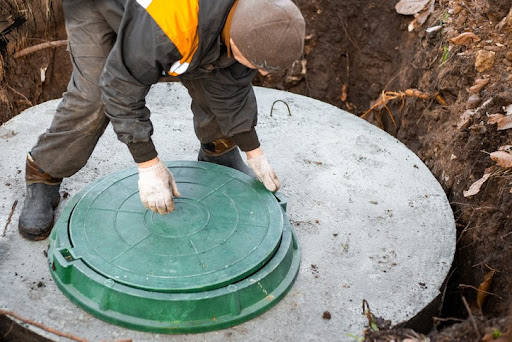Regular septic inspections are the key to maintaining a healthy, efficient, and long-lasting septic system. Simple preventative visits are just what you need to avoid plumbing problems and save money on premature septic repairs and replacements. Learn more about the main types of septic inspections, when to schedule this service, and the benefits of inspecting your septic system regularly.

Types of Septic Inspections
Septic system inspections can be classified into two types:
- Visual inspections identify potential issues that can be spotted easily, such as the level of solids, signs of leakage, and the overall condition of the tank.
- Full system inspections involve a more comprehensive assessment that includes measuring the level of sludge and scum, checking the drain field, and examining the distribution pipes to determine efficiency and identify any underlying issues.
When to Schedule a Septic Inspection
Three common situations warrant scheduling a septic inspection:
- Every three years: The Environmental Protection Agency (EPA) recommends pumping your septic tank every three to five years. A septic inspection at the three-year mark may reveal that it’s time to pump, or you may learn you can wait another year or two for this service.
- When buying or selling a house with a septic system: Whether you’re the buyer or seller, septic inspections are recommended to verify the system’s condition and identify any potential issues that could impact the sale.
- If you notice septic tank problems: Have you started noticing slow drains, gurgling sounds, or foul odors? Schedule a septic inspection promptly to avoid a full-scale sewer backup.
Benefits of Septic Inspections
Make this preventative service a priority to enjoy these benefits:
- Find and fix small problems: Early detection is the most cost-effective way to deal with septic tank problems. Only regular inspections can identify developing issues so you can repair them before costly and inconvenient system failures occur.
- Address system performance issues: Are you getting the most from your septic tank? An inspection can uncover performance issues and determine whether the system is operating at full capacity.
- Know when to pump: Your technician can inform you when it’s time to pump the septic tank based on the level of solids inside. This way, you’re not left guessing when to schedule this important service.
- Protect your home’s value and appeal to buyers: Aim to present an inspection report to potential homebuyers demonstrating that your septic system is fully functional and meets local health and safety regulations. This shows your commitment to septic system care and increases the likelihood of a fast, uncomplicated home sale.
Choose Trinity Liquid Waste for your next septic inspection, septic pumping, septic repair, or other plumbing-related services. Our trained and licensed technicians will thoroughly check the crucial components of your system to identify any wear, damage, or other issues that could affect performance. We draw on over 25 years of experience serving residential and commercial customers in the San Francisco Bay Area. For more information or to request a visit, please call us at 510-874-6489 or contact us online.
